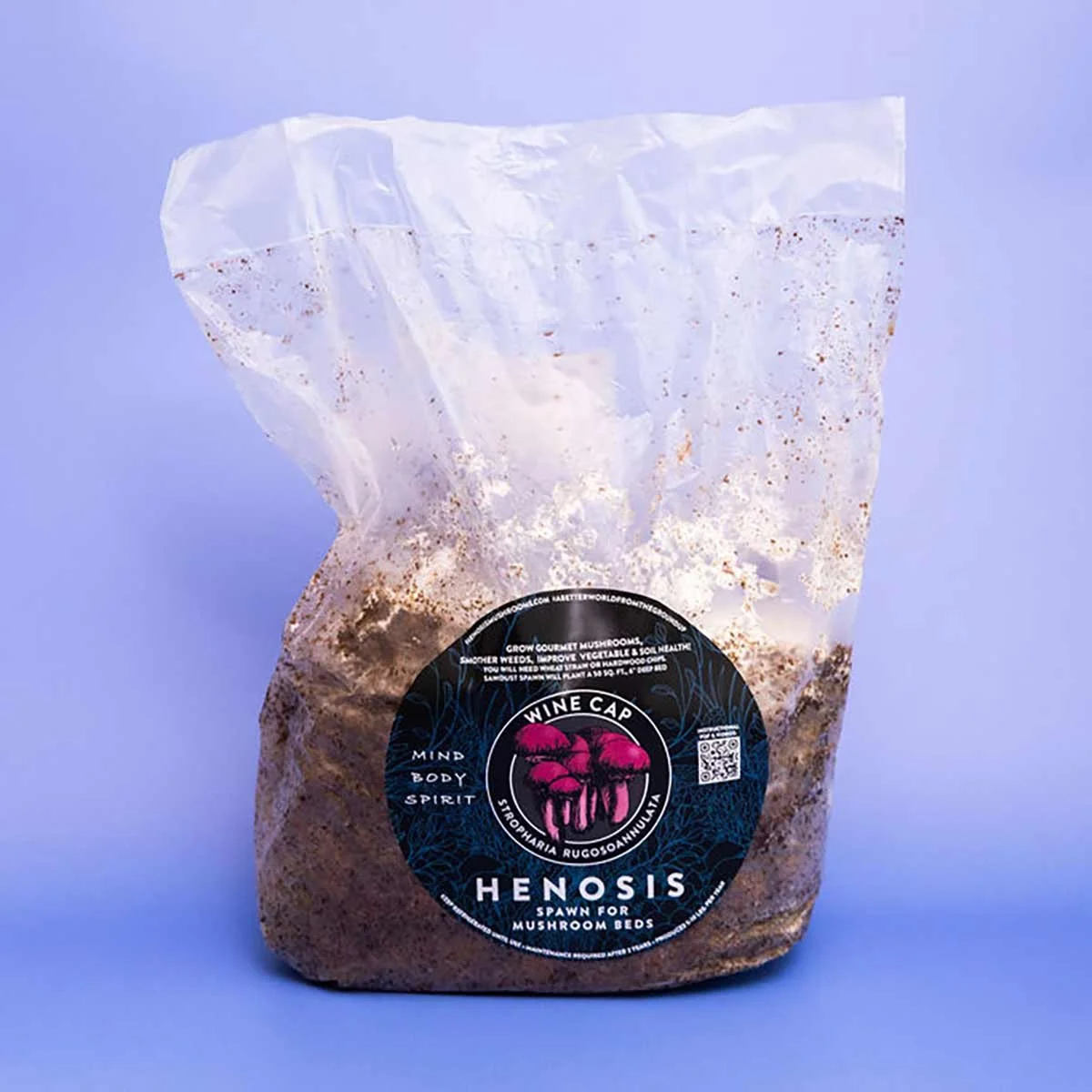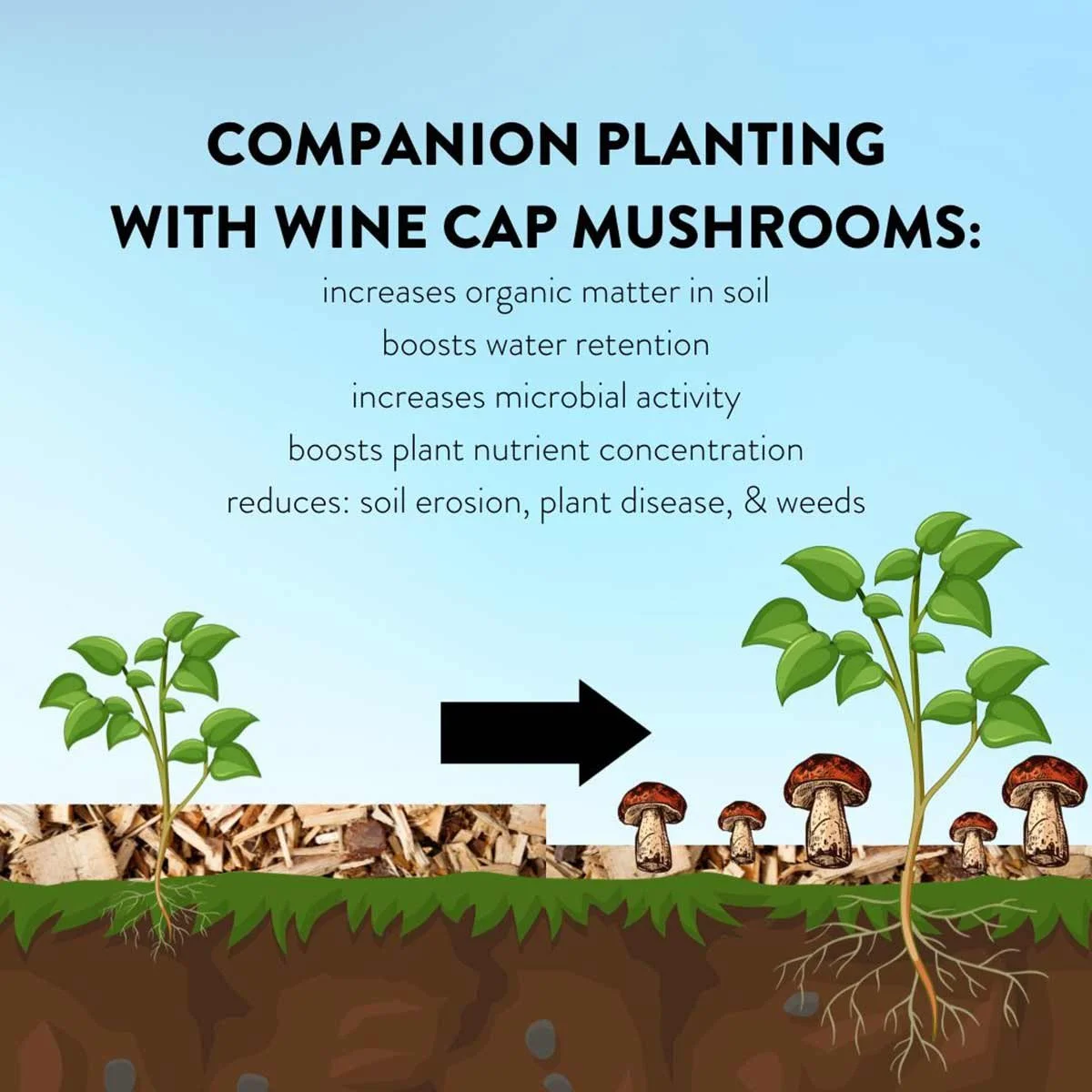Wine Cap Dust Spawn 5 Lb. (Stropharia Rugosoannulata)






Wine Cap Dust Spawn 5 Lb. (Stropharia Rugosoannulata)
Wine Cap Mushrooms (aka: King Stropharia, or “The Garden Giant”) are a garden work-horse. This species is similar in texture and culinary uses as a portobello. It grows as an annual in wheat straw or as a perennial in wood chips. (download instructions).
It has amazing water filtration, soil retention, and composting abilities! Grow them along side any vegetable or ornamental landscapes to provide additional aesthetics, water, nutrients, and health for you and your plants.
Wine cap beds can be inoculated as soon as average daytime temperatures are consistently above freezing, as late as 4 weeks before frost. Wine Caps typically fruit best in spring and fall, especially in very rainy conditions. They can tolerate sun and heat, but will not produce as much during hotter months. The fuzzy white Wine Cap mycelium can be easily transferred to inoculate other beds/areas as desired in between flushes.
Looking for something to grow indoors? Try our easy Lion’s Mane Mushroom Grow Kit!
Watch as HENOSIS CEO Founder & CEO, David Wells, walks new farmer Chelsea Young through the process of planting wine cap mushroom spawn in her existing garden beds.
Check out this study from The Sustainable Agriculture Research and Education (SARE) program, in conjunction with our friends Field & Forest Products!
WINE CAP MUSHROOM RESEARCH FINDINGS
(study conducted by SARE and Field & Forest Products)
"The Wine Cap fungus, Stropharia rugoso-annulata (SRA), is an edible specialty mushroom that excels at rapid decomposition of straw and woodchips. It is also an ideal biopesticide candidate because it is nonpathogenic, conditioned for vigorous outdoor cultivation, and easy to grow. Wine Cap mushrooms can be used to improve soil health, suppress plant disease, and supplement grower income by providing a unique mushroom cash crop.”
WINE CAP BENEFITS
Economically grown on readily available organic materials and agricultural byproducts
Easily companion planted in areas already being utilized, or for preparing new beds
Enhancement of soil organic matter, water holding capacity, and microbial activity
Reduction of plant disease, need for watering, soil compaction and erosion
Natural weed suppression
Increased nutrient density in companion plant
Delicious umami-packed flavor, and high in protein
Can tolerate more sun than the average mushroom
Caps can grow very large

